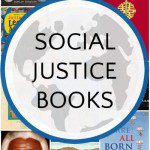Hey guys! My copy of Anonymous Tip really does appear to be lost for good, and while I’ve ordered a new (used) one and it has shipped, it hasn’t arrived yet. So today I wanted to take the moment to talk about Christian fiction more generally and Christian romance and historical fiction more specifically, to analyze some themes and to open the floor for my readers to discuss Christian fiction they may have encountered themselves.
When I was a teenager, my favorite Christian fiction was the Mark of the Lion series. It was a set of three books set in Ancient Rome. I want to take a moment to use this series to touch on some recurring themes I’ve noticed in Christian fiction.
First, the romance. The main character in the first two books, Hadassah, was a fifteen-year-old Christian girl of Jewish descent captured after the 70 A.D. siege of Jerusalem and sold as a slave in Rome. Her young mistress’s brother, Marcus, pursued her sexually and even almost raped her at one point, but Hadassah resisted him, because she was a Christian. There was literal bodice ripping. Or rather, tunic ripping. For all that it pretends to be different, Christian romance includes many similar elements to other romance novels. It simply stops slightly shorter and draws the curtain earlier than other forms.
Second, the history. Ultimately, after Hadassah rejects Marcus, her mistress Julia has her fed to the lions for being a Christian, out of spite. Can we pause to take in the history at play here? Yes, Christians were fed to the lions, but it wasn’t something that happened constantly, or every other weekend. Rather, it was something that generally happened at select moments, or in select places. Of course, Christian writers aren’t the only ones who have a problem with historical fiction, so we perhaps shouldn’t rate them too harshly here. Still, Christian historical fiction tends to include inaccuracies that are slanted in a very specific way—to be specific, inaccuracies that elide quite well with Christian historical mythology.
Third, the lack of realism. Hadassah survives her ordeal in the arena. Yes, really. Her flesh is torn by the lions and she is removed from the arena presumed dead, only to be saved by a doctor waiting to perform dissections. Again, I suppose this is something common in other historical works as well, but Christian fiction seems (to me at least) to be willing to push farther in how willing readers will be to suspend disbelief. Perhaps it’s partly because Christian fiction can ascribe unrealistic occurrences like this to God’s hand of protection, or guidance.
Fourth, the presentism. Before the incident in the lion’s den, Julia has a baby with a gladiator and then gives it to Hadassah to expose on the rocks. Hadassah takes the baby to the Apostle John, who in turn gives the baby to Rizpah, a young Christian woman who has just lost her son and her husband (chariot accident). If the parallels to modern opposition to abortion aren’t made clear enough in this section—and they are—there’s also an earlier section where Julia gets pregnant with her first (abusive) husband and takes a potion to cause an abortion. Hadassah is so horrified that she gives the fetus a proper burial.
Fifth, evil pagan people. When the gladiator, Atretes, is freed and finds out that Rizpah has his baby, he goes to her to demand its return. Ultimately, she travels with him to his native Germany so as not to be separated from the baby. Atretes has a dramatic conversion moment on the way back to Germany—typical of Christian fiction in general—and then drives back home, where of course there’s an ex-lover who is also some sort of sorcerer. The entire portrayal of the Germans Atretes returns to struck me as off even as a child. It’s not realistic, and it’s littered with Christian tropes.
The book also touches on other common themes in Christian fiction, such as Hadassah’s decision to forgive Julia for having her thrown to the lions, or the unkindness the Jewish slaves in the household show to Hadassah when they learn she is a Christian. It also has an entire section where Marcus travels to Jerusalem and the surrounding areas seeking to learn more about Hadassah’s people and background and then converts to Christianity, completely with a dramatic baptism scene, under the tutelage of a small group of Christians he meets there.
With this background, the primarily problem I see with Christian fiction is that the books frequently read more as advertisements for Christianity than as realistic portrayals of how the world works, and what ordinary people’s lives actually look like. This is perhaps to be expected given the label “Christian fiction” rather than “fiction that just happens to be written by a Christian” or “fiction written about characters that just happen to be Christians.” Still, this reality limits the audience of these books, ensuring that they will only be of interest to those already in the evangelical fold.
Let me finish on one last note. I think Christian historical fiction, in particular, could be utterly fascinating—if, specifically, it made some effort to be historically accurate. What did early Christians think about women who took concoctions of herbs to induce abortions? What did they think about the practice of abandoning unwanted infants? How did they talk about virginity? How would a young Christian girl in Hadassah’s position have actually acted? What beliefs and theologies mattered to Christians living at that time and in that place? How would they have talked about God?
I’ve read nearly everything Bart Ehrman has written about early Christianity. The topic is fascinating. If nothing else, though, it points to how deeply Christianity has changed over time. I suspect that Christian historical fiction generally ignores this change because paying full attention to it would require admitting that such change has occurred—that the doctrines and beliefs evangelical Christians consider important today are not necessarily the doctrines and beliefs that were considered important in 100 A.D., or in 1100, or in 1700.
How about you? What historical fiction did you grow up reading (if any)? What themes did you notice? What books (if any) had a special impact on you?















